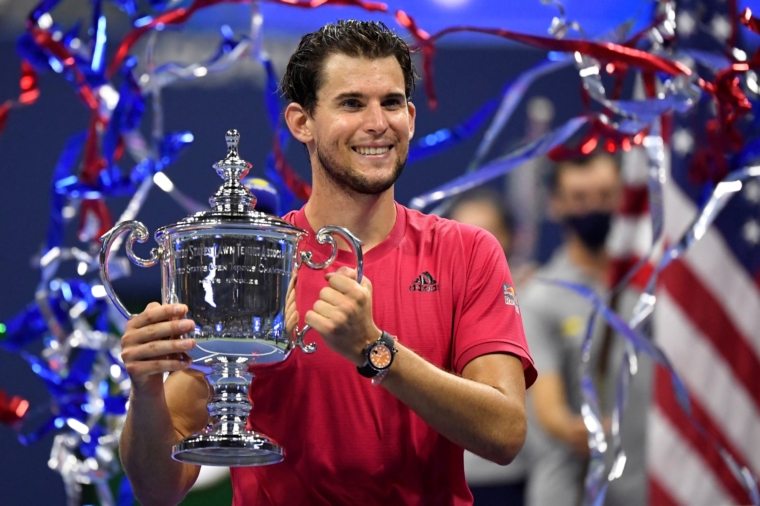Dominic Thiem might reasonably have expected to end the autumn with a grand slam title to his name, but if you were a betting type, the US Open would not have been your first choice for the 27-year-old to become the first man born in the 1990s to win a slam.
For more than an hour on Sunday night, the smart money probably still wasn’t on Thiem as he produced his two worst sets of tennis of the tournament while Zverev produced probably his best.
Thiem injured his Achilles against Daniil Medvedev, requiring treatment on his right foot before the start of the third set of a fine semi-final win, and there were signs in the opening two sets against Zverev that he was not moving freely.
Then in the third set, Thiem added five miles an hour to both forehand and backhand strokes, an indication that he had decided to start swinging for the fence – and it worked, the irony being that you might have expected most players to retire at about the very moment he found his rhythm. Often in such circumstances, the adrenaline and drive of a professional tennis player will get them through the first hour. However, usually when the match reaches a third set and the realisation dawns that five sets would be a physical impossibility, a concessionary handshake ends the contest.
Not so with Thiem. It is possible that the injury was not as bad as first thought, or merely that this man is made of sterner stuff. For years he was trained by the unrelenting Gunter Bresnik, playing tournaments just about every week of the year before dragging himself to the season-closing World Tour Finals, where he would beg for his two-week winter break before starting the gruelling programme all over again. Perhaps those years of suffering, while still playing at the top level, of running up mountains with weights tied round his waist, of spending 12 hours a day working on fitness, were what prepared him for this latest episode of pain. Certainly, he showed a hunger for the travail.
By contrast, Zverev’s brittle frame is matched by his brittle mind. The double faults that have haunted him crept back in, particularly at crucial moments, and when serving for the match in a dog-tired fifth, he crumbled.
In truth, neither player cantered towards the finish line, with six breaks of serve in the decider and five mini-breaks in the tie-break – and while ice baths are still not allowed on site the recovery period will have started straight after the match for both men with the French Open just two weeks away.
With the clay-court slam fast on the heels of the US Open, one person who will have enjoyed watching Thiem sweat blood to earn the title is Rafael Nadal. The Spaniard opted out of the US on Covid grounds, although perhaps also with one eye on the Roland Garros tournament he has won 12 times, and as such the even-money favourite will be as fresh as a daisy in Paris in a fortnight’s time.


Thiem is the man who has come closest to beating him in the last two years, beaten in the 2018 and 2019 finals, winning a solitary set across the two matches, no disgrace against the greatest clay-court player in the history of the game. He will though, assuming he can regain physical condition, expect to go better this year after coming from two sets down to win a grand slam final. Nadal is supposed to be the sport’s best mental player; in Thiem, he has a worthy adversary.
However, the betting market rates his injury more than it does the mental boost of having broken his grand slam duck. He was down to around 10-3 to win the French Open on the Betfair Exchange when he was still just a semi-finalist at the US. The morning after his title win, he has drifted out closer to 9-2, representing a five per cent drop in his probability of winning in Paris.
That is not to say the Austrian world No 3 is the only threat to the Spaniard’s crown. Novak Djokovic will be fresher than expected thanks to his disqualification from the US Open in the fourth round and will have had the chance to play the Italian Open on Roman clay to adjust to the surface. Thiem will mostly likely still be trying to ease some of his muscle soreness by the time Djokovic is into the quarter-finals.
Nadal will start as clear and deserved favourite, as likely as not to make it lucky No 13 at Roland Garros. There will even be some fans to see it. But if Thiem can summon the powers of recovery that he showed in the third set against Zverev on an even greater scale, he will prove a significant danger to the Spaniard.

